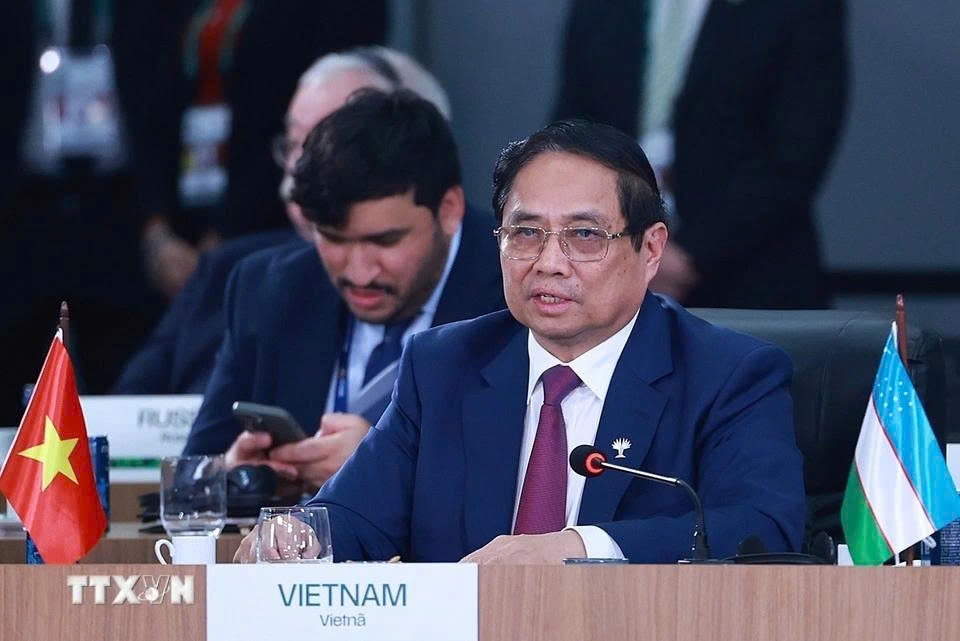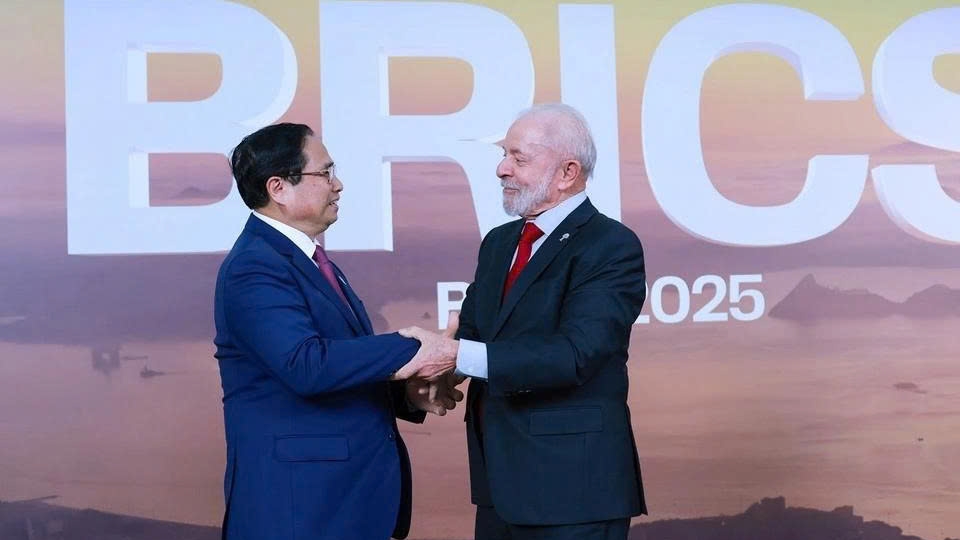Vietnam proposes strategic pillars to strengthen BRICS and global governance
VOV.VN - Vietnamese Prime Minister Pham Minh Chinh put forward three strategic pioneering proposals at the 2025 BRICS Summit in Brazil, aimed at creating a fairer, more equitable, efficient, inclusive, and sustainable global governance system that empowers developing countries and the Global South with greater influence and representation.

Opening his remarks at a plenary session titled “Strengthening Multilateralism, Economic-Financial Affairs, and Artificial Intelligence” on July 6 (local time), the PM reaffirmed that Vietnam is a sincere friend, reliable partner, and responsible, active member of the BRICS community and the international system.
Vietnam stands ready to cooperate with BRICS and Global South countries to promote mutually beneficial cooperation, enhance connectivity, and jointly address shared challenges towards building a scientific, effective, inclusive, and sustainable global governance system, he said.
He congratulated Brazil on successfully assuming the BRICS Presidency in 2025 and emphasided that this year’s summit sends a strong message that the Global South is not only a driver of global growth but also a key force in building a fairer, more equal, effective, sustainable, and inclusive international order.
According to the Vietnamese Prime Minister, the world is undergoing profound changes marked by political polarisation, economic fragmentation, institutional division, and development disparities, which have led to weakened trust in global institutions, diminished multilateral cooperation, and shaken confidence in international law.
In response, he called for stronger international solidarity, a renewed commitment to multilateralism, and a united effort to tackle global challenges through inclusive, comprehensive, and people-centred approaches.
PM Chinh then proposed three pioneering roles for BRICS and BRICS partner countries, including pioneering in reviving multilateralism, by advocating for equality, anti-monopoly, and opposition to protectionism; committing to dialogue over confrontation in line with the UN Charter and international law; and reforming global institutions like the United Nations, the International Monetary Fund, the World Bank, and the World Trade Organisation to reflect new realities, voices, and needs.
He stressed the need to strengthen South-South cooperation, and deepen BRICS–ASEAN linkages to serve as a “bridge of trust” between developing and developed nations, while embracing unity in diversity as a new driving force for inclusive and sustainable development.
To promote free and fair trade, he said, it is imperative to champion equal rights and interests of all nations; promote market openness, supply chain connectivity, and resource sharing; support technology transfer, human resource development, and cooperation in health, education, digital infrastructure, green transition, and climate adaptation; and explore diversified payment methods, including local currency settlements in intra-BRICS trade and with other regional blocs.
To harness artificial intelligence (AI), he proposed using AI to serve humanity, not replace it; work toward a global AI governance framework that is fair, safe, secure, and accessible to all; and develop an AI ecosystem based on ethical values, balancing innovation with social benefit. He underscored the importance of collaborating in building digital infrastructure, data centres, green standards, and high-performance systems, and at the same time promoting AI-for-community programmes that ensure people everywhere can access and benefit from AI.
“Today’s complex global shifts affirm the profound insight of President Lula da Silva that defending multilateralism is the only path forward. On that journey, Vietnam stands united with BRICS and the Global South, striving to build a truly fair, equal, scientific, inclusive, and sustainable global governance system,” concluded the Prime Minister.
The two-day summit continued in Rio de Janeiro on July 7, with another plenary session titled “Environment, COP30, and Global Health.”





